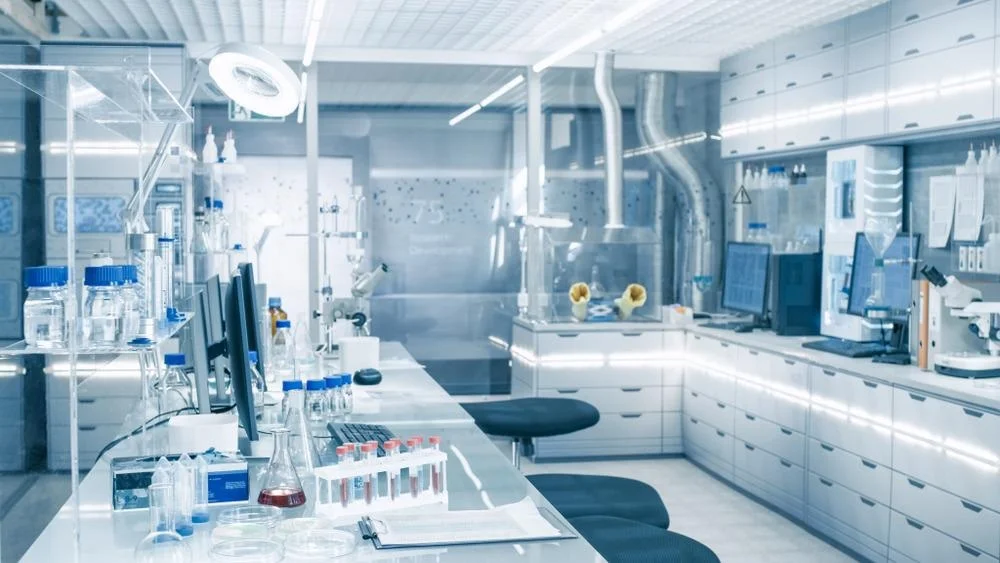JIS K0099 Determination of Organic Compounds in Wastewater
The JIS K0099 standard specifies a method for determining the concentration levels of organic compounds, particularly volatile and non-volatile organic compounds, in wastewater. This process is crucial for environmental protection and compliance with regulatory standards.
The determination involves the collection and preparation of water samples from various sources such as municipal sewage plants, industrial effluents, and surface waters. The collected samples are then analyzed using advanced instrumental techniques to quantify the organic compounds present in the wastewater. This method is particularly important for industries that discharge wastewater into public or natural bodies of water.
The significance of JIS K0099 lies in its ability to provide accurate quantification of organic pollutants, which helps in assessing the potential environmental impact and ensuring compliance with international standards like ISO 15806 and ASTM D7432. By adhering to this standard, organizations can minimize their ecological footprint and comply with stringent environmental regulations.
The process typically involves several key steps: sampling, pretreatment of samples, extraction techniques such as liquid-liquid extraction or solid-phase extraction, derivatization for enhancing detection sensitivity, and finally, analysis using gas chromatography coupled with mass spectrometry (GC-MS). This ensures that even trace amounts of organic compounds can be detected.
The importance of accurate sampling cannot be overstated; improper sample collection can lead to significant errors in the final results. Therefore, strict adherence to the standard's sampling protocols is essential. The pretreatment step involves removing interfering substances and stabilizing the samples if necessary before analysis.
Once the samples are prepared, they undergo extraction using appropriate solvents suitable for different types of organic compounds. This step ensures that all target analytes are efficiently extracted into a phase that can be analyzed further. The choice of solvent depends on the nature of the compounds being analyzed; polar solvents may be used for hydrophobic compounds while non-polar solvents might be preferred for lipophilic substances.
Derivatization is another critical step where the organic compounds are chemically modified to improve their detectability by GC-MS. This process involves converting the functional groups of these compounds into more stable derivatives that yield better signals during analysis without altering their chemical structures significantly.
The final stage of the procedure involves instrumental analysis using GC-MS which separates and identifies individual components based on retention times and mass spectra patterns. The data obtained from this step provides detailed information about the composition of organic pollutants in wastewater samples, helping stakeholders make informed decisions regarding treatment processes or regulatory compliance measures.
Understanding the nuances involved in each stage ensures reliable results that meet both internal quality control requirements as well as external standards set by governmental bodies responsible for environmental protection. Compliance with JIS K0099 not only demonstrates a commitment to sustainable practices but also enhances an organization's reputation among clients and stakeholders.
Why It Matters
Accurate measurement of organic compounds in wastewater is vital for maintaining clean water resources and protecting aquatic ecosystems. Excessive levels of these compounds can lead to oxygen depletion, harm aquatic life, and disrupt the overall balance within affected bodies of water.
By leveraging JIS K0099 methods, industries involved in manufacturing, chemical processing, and other sectors that generate wastewater can better manage their environmental impacts. Regular monitoring helps them identify problem areas early on, allowing for targeted interventions to reduce pollution before it becomes severe.
The results derived from this testing play a pivotal role in decision-making processes related to water treatment technologies selection, effluent discharge limits setting, and pollution prevention strategies development. Organizations adopting rigorous quality assurance practices around JIS K0099 procedures contribute positively towards sustainable development goals while enhancing their competitiveness within global markets.
- Reduces potential risks associated with improper disposal of industrial wastes
- Promotes the use of cleaner production technologies and methods
- Facilitates compliance with local, national, and international environmental laws and regulations
- Encourages continuous improvement in waste management practices across various industries
Applied Standards
The JIS K0099 standard is closely aligned with other international standards such as ISO 15806, ASTM D7432, and EN 12457. These standards provide comprehensive guidelines for various aspects of wastewater analysis including sample preparation, extraction techniques, derivatization methods, and instrumental detection procedures.
Adherence to these standards ensures consistency across different laboratories conducting similar tests worldwide, thereby facilitating comparison of data between regions and enhancing the credibility of analytical results. Additionally, following these established protocols helps maintain high-quality outcomes in terms of precision, accuracy, and reliability of measurements.
International Acceptance and Recognition
- JIS K0099 is widely recognized by countries like Japan for its robustness and applicability in assessing organic compounds in wastewater.
- The methods outlined in JIS K0099 are also accepted by organizations such as the United Nations Environment Programme (UNEP) and World Health Organization (WHO), who use them to monitor global water quality trends.
- Many multinational corporations incorporate JIS K0099 into their corporate sustainability initiatives, ensuring that they meet stringent environmental performance criteria wherever they operate globally.





